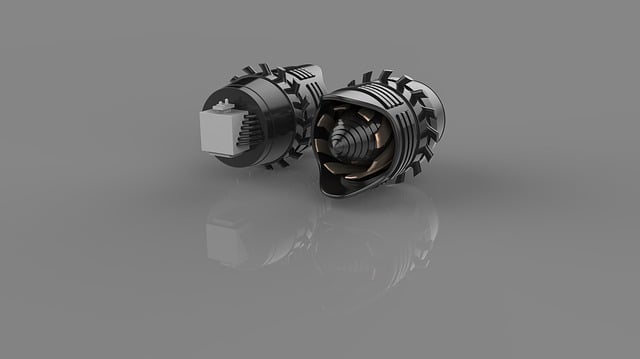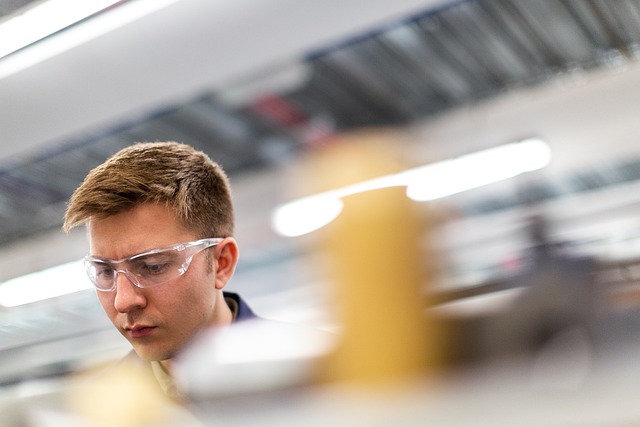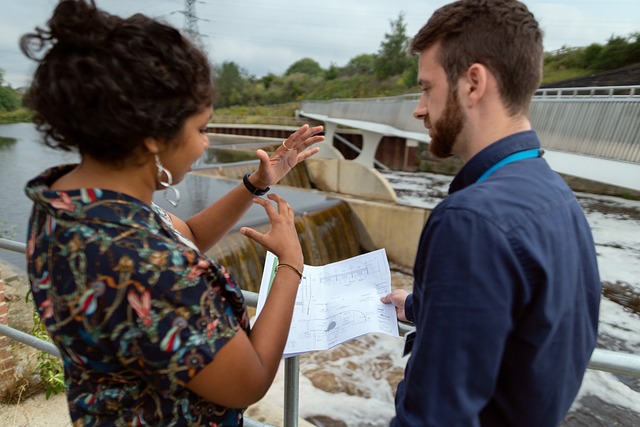The text highlights that a strong passion for aerospace engineering is crucial for success. It emphasizes the importance of a solid foundation in math and science, encouraging students to excel in calculus, physics, and chemistry. Introductory aerospace courses at school or online are recommended, along with hands-on projects to gain practical experience. The text suggests exploring industry standards, connecting with professionals, and strategically planning university applications. Building a strong academic record, engaging in STEM activities, and demonstrating passion through projects are key to a successful career in aerospace engineering.
Aspiring aerospace engineers, this guide is your launchpad to success. Transitioning from high school to university-level aerospace engineering demands a strategic approach. With a passion for the cosmos and a strong academic foundation, you can embark on this exhilarating journey. This article unveils 10 essential tips, from cultivating a deep love for aerospace to mastering critical skills and exploring introductory courses, ensuring a smooth transition into one of the most innovative and demanding fields of study.
- Define Your Passion for Aerospace Engineering
- Strengthen Mathematics and Science Skills
- Explore Introductory Aerospace Courses
- Build a Strong High School Record
- Gain Hands-On Experience through Projects
- Familiarize Yourself with Industry Standards
- Network with Aerospace Professionals
- Prepare for University Applications and Challenges
Define Your Passion for Aerospace Engineering

A deep passion for aerospace engineering is your compass as you embark on this exciting journey. It’s more than just an interest in planes or space; it’s a burning desire to understand and contribute to the cutting-edge technologies that propel humanity forward. This passion will fuel your motivation during challenging times, drive your insatiable curiosity, and inspire innovative thinking.
Reflect on why aerospace fascinates you—is it the quest for exploration, the thrill of innovation, or the potential to shape our future? Clarifying this will help guide your preparation path, ensuring that every step aligns with your core motivation. Remember, a genuine passion is a powerful engine for learning and success in this demanding field.
Strengthen Mathematics and Science Skills

Building a solid foundation in mathematics and science is paramount when preparing for aerospace engineering studies. High school students should focus on excelling in core subjects like calculus, physics, and chemistry, as these form the backbone of more advanced topics in university. Many introductory aerospace courses heavily rely on a strong understanding of differential equations, linear algebra, and mechanics, all of which are deeply rooted in mathematics.
Beyond textbook knowledge, developing problem-solving skills is crucial. Encourage a habit of tackling complex mathematical problems and analyzing scientific phenomena critically. This will not only enhance your conceptual understanding but also equip you with valuable analytical tools necessary for tackling real-world aerospace engineering challenges.
Explore Introductory Aerospace Courses

Before diving into advanced aerospace engineering courses, it’s crucial to explore introductory options available at your school or through online platforms. These foundational courses provide a strong grasp of physics, mathematics, and computer science, which are core subjects in the field. They often include topics like mechanics, thermodynamics, fluid dynamics, and programming fundamentals, setting the stage for more complex aerospace concepts.
Many high schools offer Advanced Placement (AP) or International Baccalaureate (IB) courses in these areas, allowing students to earn college credits early on. Additionally, online educational platforms host a wealth of introductory aerospace courses designed for aspiring engineers, offering flexibility and accessibility. These resources can give you a head start, ensuring you’re better prepared when transitioning to university-level aerospace engineering programs.
Build a Strong High School Record

Building a strong high school record is a foundational step for aspiring aerospace engineers. Focus on rigorous science and mathematics courses, such as calculus, physics, and advanced placement (AP) options in these fields. These subjects form the core of aerospace engineering principles and will prepare you for the demanding coursework ahead.
Excellent academic performance also demonstrates your commitment to the field. Consider extracurricular activities related to STEM, like robotics clubs or science fairs, to showcase your practical skills and passion for aerospace concepts. A well-rounded profile with strong academics and relevant involvement can set you apart when applying to university programs in aerospace engineering.
Gain Hands-On Experience through Projects

Engaging in hands-on projects is invaluable preparation for aerospace engineering studies. High school students should look for opportunities to design and build models of aircraft or spacecraft, participate in rocketry clubs, or enter STEM competitions focused on aviation or space technology. These experiences not only provide a tangible understanding of the principles you’ll study but also foster problem-solving skills, teamwork, and perseverance – crucial qualities for success in this challenging field.
Local community colleges, science centers, and maker spaces often offer classes or workshops that cater to aspiring aerospace engineers. Utilizing these resources allows students to gain experience with relevant tools, software, and techniques before entering university programs. Building a portfolio of projects can demonstrate your passion and initiative to prospective universities, setting you up for academic success in your pursuit of an aerospace engineering degree.
Familiarize Yourself with Industry Standards

Before diving into your aerospace engineering studies, it’s crucial to get acquainted with industry standards and best practices. This includes understanding the technical specifications, safety protocols, and design principles that govern the aerospace sector. Familiarize yourself with key organizations like NASA, ESA (European Space Agency), or national aviation authorities, as their guidelines and research often set the benchmark for the field.
Explore resources such as industry reports, academic journals, and online forums where professionals discuss current trends and challenges in aerospace engineering. This will not only broaden your knowledge but also help you identify areas that interest you the most, be it astronautics, aircraft design, or propulsion systems. By doing so, you can tailor your studies to align with your passions and future career goals.
Network with Aerospace Professionals

Connecting with professionals in the aerospace industry is invaluable for aspiring engineers. Reach out to local aerospace companies, attend industry events, and join relevant online communities to start building your network. These interactions offer unique insights into real-world applications of engineering concepts, provide guidance on career paths, and may even open doors to internships or mentorship opportunities.
Seeking advice from seasoned professionals can shape your understanding of the field and help you set realistic goals. Remember, networking is a two-way street—just as you gain knowledge, offer your enthusiasm and fresh perspectives to foster meaningful connections that could prove beneficial throughout your academic and professional journey.
Prepare for University Applications and Challenges

Preparing for university applications is a crucial step for aspiring aerospace engineers. It involves more than just submitting transcripts and test scores; it requires a strategic approach to stand out among a competitive applicant pool. Start by familiarizing yourself with the specific requirements of your target universities, including any unique application processes or deadlines. Develop a strong personal statement that showcases your passion for aerospace engineering, highlighting relevant projects, internships, or extracurricular activities.
Additionally, expect challenging university-level courses and a rigorous academic workload. Build a solid foundation in mathematics, physics, and computer science, as these subjects are essential for aerospace engineering. Consider taking advanced placement (AP) or International Baccalaureate (IB) courses during high school to get a head start. Online resources, tutoring services, and study groups can also be invaluable tools for navigating the academic challenges ahead.
In preparation for a degree in aerospace engineering, cultivating a passion for the field, excelling in mathematics and science, and gaining practical experience are key. Completing relevant courses, building an impressive high school record, and networking with industry professionals will significantly enhance your application. Remember, a strong foundation in these areas is essential to navigating the challenging yet rewarding path of aerospace engineering studies and future career success.
